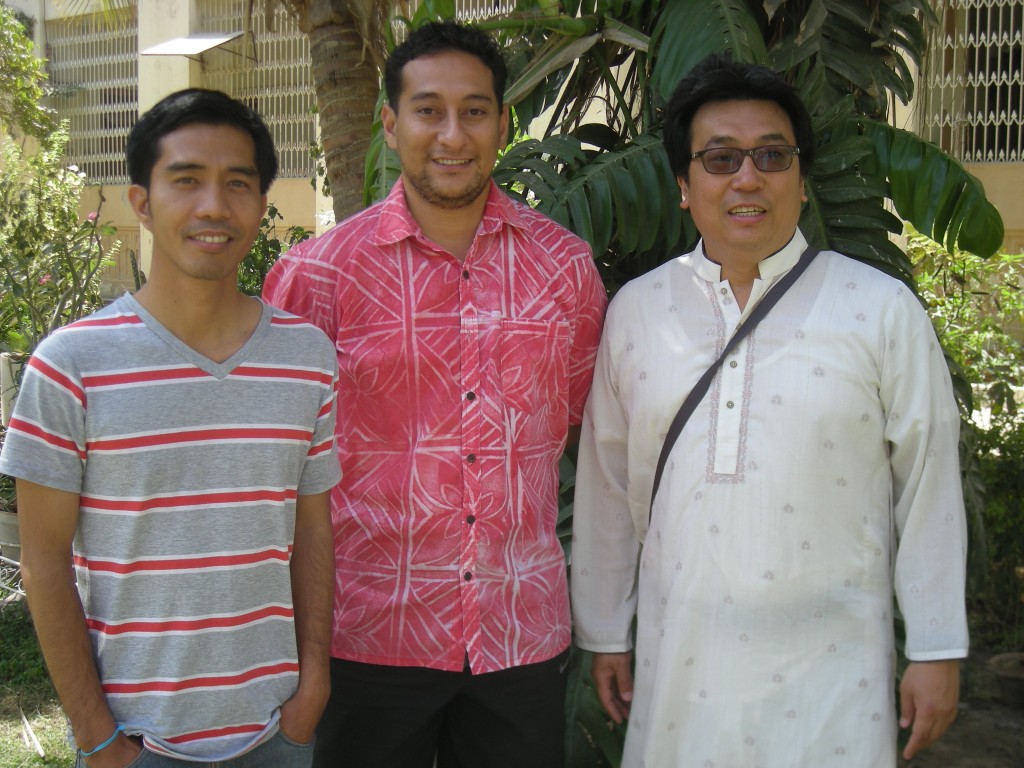Dialogue of Ordinary Life
Louie Ybanez

Dialogue of Ordinary Life in Pakistan
Louie Ybanez, Columban Student
Matli Parish surrounded by Hindus and Muslims
In Pakistan, a country that is predominantly Muslim, one thing that is necessary is dialogue with the other faiths. In Matli Parish in the diocese of Hyderabad, where I lived for my First Missionary Assignment (FMA) experience, the Christian colony is surrounded by Hindus and Muslims. These communities have been neighbors for many years. I find this a great start for my interest in interfaith dialogue.
There are many prejudices towards one another. What I realized is that there are many sensitive issues brushed under the rug and various experiences of oppression that the Christians have been experiencing against other religions. It’s a dormant sentiment, but when buttons are being pushed, it could lead into an outburst just like how some of the Christians reacted when two churches in Lahore were bombed in 2014 (two men who were suspected of involvement with the attackers were beaten and burned to death by an angry mob).
Saleem and his Sons
I got to know Saleem and his sons, Imran and Amir, through Fr Tomas King, who has known them since when he was the parish priest here in Matli. They have a shop near the church and they have been commissioned many times to do some carpentry work for the church. On my free time, I go to his shop and we talk mostly on his carpentry work and sometimes he acquaints me with his ideas for windows and furniture designs. I share my thoughts as well. His sons are his assistants and they themselves are very friendly towards me. I became aware of the many traditions and culture of Pakistani Muslims through them and I also tell them about my country and traditions. They introduced me as well to many of their friends so it helped me to grow in confidence in relating to Muslims.
The Man on Top of the Bus
Once when I travelled to Badin from Matli, the bus broke down so I have to transfer to another bus. That time it was rush hour so I had no choice but to climb up to the bus roof and sit along with the many people mostly coming from their work. I sat conveniently at the center with a good scenic view of the Sindh plains. Many were surprised and interested why a seemingly Chinese man would climb up the roof for half of the fare. Soon enough I got into conversations and my little Urdu came very handy.
What caught my attention was this young man who wants to talk to me but is unable to because he was way too far from where I sat. He noticed the cross on the rosary bracelet that I wore that time. Unable to be heard he points to the cross and then his finger went to point towards the sky. When we reached Badin, I asked him if he is a Christian. The man is a Muslim. I was stunned by someone who is a Muslim associating the cross to God. We introduced each other’s name and parted ways with a handshake.
Ordinary Life
Here in Pakistan dialogue happens on the mundane reality of life.
- It happens as I walk on a busy alley, as I give a response to typical “As-salaam alei-kum” and “Namaste” greetings of my Muslim and Hindu neighbors.
- As I go through different shops and being offered chai (Pakistani tea) as a sign of hospitality.
- In the school,I get to witness a sprawling friendship between children of different religions.
- It comes about when I go to a barber shop and engage in casual conversation when being asked all sorts of questions.
- Or when I travel on a public bus where I get to stand beside a complete stranger and engage in conversation on the harsh but sometimes funny reality of Pakistani life.
These are the many occasions that my FMA experiences have been very instrumental for some growth. While this is true that there is oppression, the reality is that there is an ongoing dialogue that has been taking place in the day to day life of the common people; one that is not immediately perceived as dialogue, yet it springs out from a genuine intention to get to understand the other.
